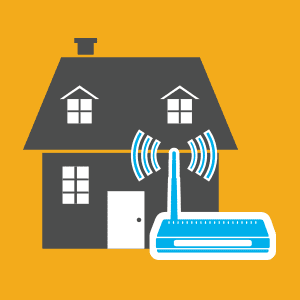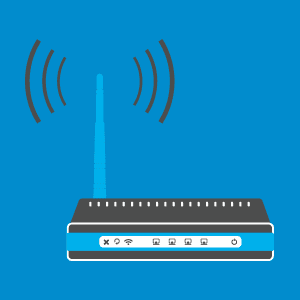HouseholdsIn Normangee (Leon County), TX, the aggregate number of households is 136,851 |
Median IncomeHouseholds in the city of Normangee (Leon County), TX have a median income of $52,987. |
PopulationThe total population in the city of Normangee (Leon County), TX is 294,002 |
DSL TechnologyApproximately 94.27% of consumers in the city of Normangee (Leon County), TX have access to DSL internet |
Fiber TechnologyApproximately 73.24% of consumers in the city of Normangee (Leon County), TX have access to fiber-optic internet. |
Cable TechnologyApproximately 89.35% of consumers in the city of Normangee (Leon County), TX have access to cable internet. |
Wireless TechnologyApproximately 100% of consumers in the city of Normangee (Leon County), TX have access to mobile broadband internet. |
Average upload speedFor residents in the city of Normangee, TX, the city-wide average upload speed is 9 Mbps |
Average download speedFor residents in the city of Normangee, TX, the city-wide average download speed is 10 Mbps. |
Best Internet Service Providers in Normangee, TX


Call (858) 947-7574

Best Internet Service Providers in Normangee, TX
| Provider | User Rating | Phone Number |
|---|---|---|

|
|
(858) 947-7562 |

|
|
(205) 946-1154 |

Choosing the Best Internet Service in Normangee, TX
The Internet services available in Normangee, TX work differently, and before you decide on a particular service provider, you should understand how the different connections work. When shopping for high-speed Internet services, you have a variety of options to choose from. A few well-known services are satellite, fiber optic, cable and DSL. Although the wide range of choices can be confusing, consumers benefit from increased competition among service providers. The download speeds available from different services are increasing while the price continues to drop. For the average consumer, the increased competition results in better deals. The downside of being able to choose from many different providers is confusion.
Fortunately, MyRatePlan makes it easier for customers to find excellent deals on high-speed Internet in Normangee, TX. MyRatePlan compares many different DSL, satellite and cable Internet providers, so consumers don't need to spend too much time trying to find the best deals. There are many consumers who want to find an Internet service that is compatible with their television or telephone service, and by entering a ZIP code into our tool, it's possible to search for compatible services.
MyRatePlan even has a dedicated section for business Internet providers, which is a useful feature for business owners. Many consumers want to test the connection speed of their Internet service, and MyRatePlan offers a tool that makes testing quick and easy. The Internet speed tool can run without Flash or Java, so it's compatible with a wide range of devices.

Normangee, TX Cable Internet Service
When shopping for high-speed Internet service, cable is a popular option, and many providers also offer television and phone services with cable Internet. A cable Internet connection in Normangee, TX uses physical fiber-optic or coaxial lines, and it involves a physical connection between the consumer and provider. The service requires a cable modem, which connects to the Internet through bandwidth from TV channels. To find the best cable Internet in your area, use the MyRatePlan comparison tool.
The reason why cable Internet is effective is because it doesn't use a huge amount of bandwidth. Due to the low bandwidth usage, cable Internet is commonly bundled with television service. Several Internet service providers in Normangee, TX offer affordable bundles, which come with Internet, TV and phone services. For some consumers, it's a good idea to bundle these services, but for others, it might make more sense to pay for services individually. Cable Internet is a very popular service because it involves a physical connection and cables. The distance between the consumer and provider doesn't matter because the coaxial cables create a strong, physical link.
Cable Internet in Normangee, TX is especially useful for residents who don't share a connection with others. The downside of using a cable connection is that it must be shared with others. When several cable customers live near each other, they must share the cable connection that leads back to the provider. If some of the subscribers are heavy Internet users, they can slow down the connection for the other cable users. Streaming HD movies and downloading huge files can make the Internet connection run slower for other subscribers. This problem occurs because cable users are forced to share the same bandwidth. MyRatePlan allows consumers to compare prices for many different cable providers and find the best offers for their area.

Fiber Optic Internet Service Providers in Normangee, TX
Some of the most advanced and newest Internet technologies are being provided over fiber optic services. In Normangee, TX, customers can find fiber optic providers with Internet, television and phone options. Fiber optic Internet functions much akin to cable service. However, in many areas, fiber optic Internet is even faster. Some fiber optic services are labeled "FiOS." MyRatePlan can help you to review these options in comparison with each other and additional types of Internet services.

Compare DSL Internet Service in Normangee, TX
To compare DSL providers in Normangee, TX, consumers can use MyRatePlan. With a DSL connection, consumers can access the Internet and enjoy all of their favorite online activities. DSL stands for digital subscriber line, and unlike cable, it runs through traditional telephone lines. The frequency range that transmits telephone calls over the network can also be used for an Internet connection, and since calls don't use a lot of bandwidth, there is plenty of extra bandwidth for an Internet connection. A DSL modem is needed for an Internet connection, and it's a small modem that must be connected to a computer. After the modem has been connected through a DSLAM, it can be used for the Internet.
When a phone call is made through telephone lines, it requires minimal bandwidth, and consumers in Normangee, TX can use DSL service to take advantage of the extra bandwidth available from phone lines. One of the major benefits of having a DSL connection is the ability to browse the Internet while making important phone calls. This isn't possible with a traditional dial-up connection. An advantage of DSL over cable is the lack of connection sharing. DSL customers get their own dedicated line, so they don't have to share their Internet connection with other users. Depending on the area, this could result in faster Internet speeds than cable. The downside of DSL is that the connection gets weaker for customers who live a long distance away from the nearest provider.

Satellite Internet Services in Normangee, TX
Many residents of Normangee, TX are looking for satellite Internet, and they want to get the best deals available. Satellite Internet uses a satellite dish and doesn't work like cable or DSL. To use this Internet connection, you must have a satellite dish, and it must face towards the equator. A modem is needed to establish a connection between your computer and satellite dish. Once you're paying a service provider, the satellite dish receives a signal that is beamed down from a satellite. The modem translates the data and provides a working Internet connection.
Satellite Internet service isn't terribly popular with residents of Normangee, TX because it's not as fast as cable or DSL. However, it's almost always the best option for people who live in rural, remote areas because it's not cost effective for providers to install physical lines in these areas. Cable and DSL tend to be the best options for most people who don't live in rural areas.
Find Internet Service Providers in
ZIP Codes in Normangee, TX
- 77871


 Menu
Menu